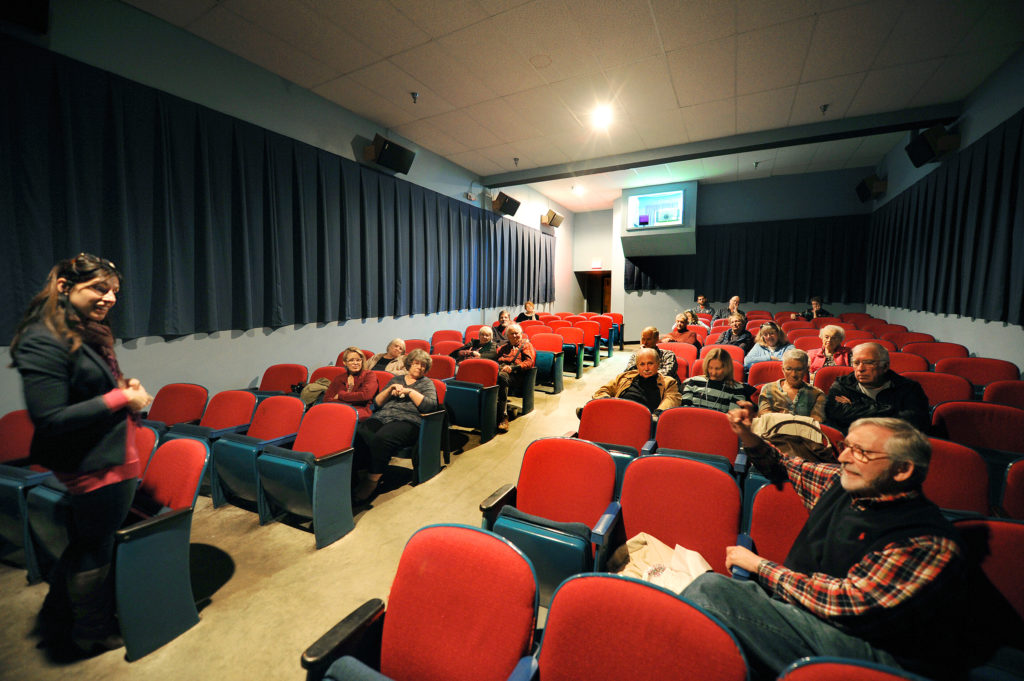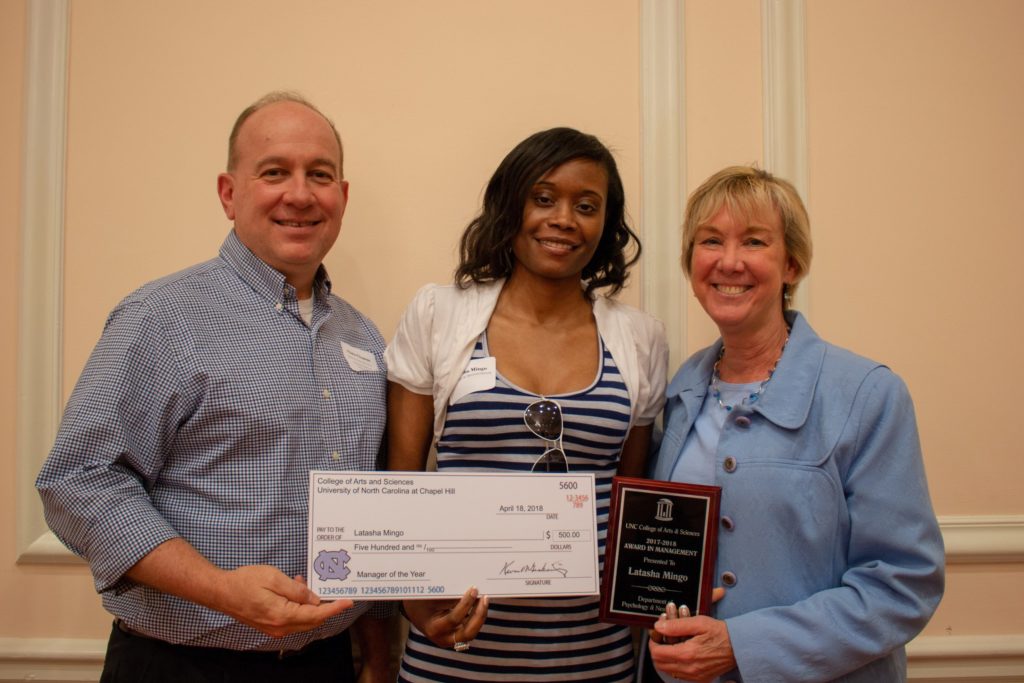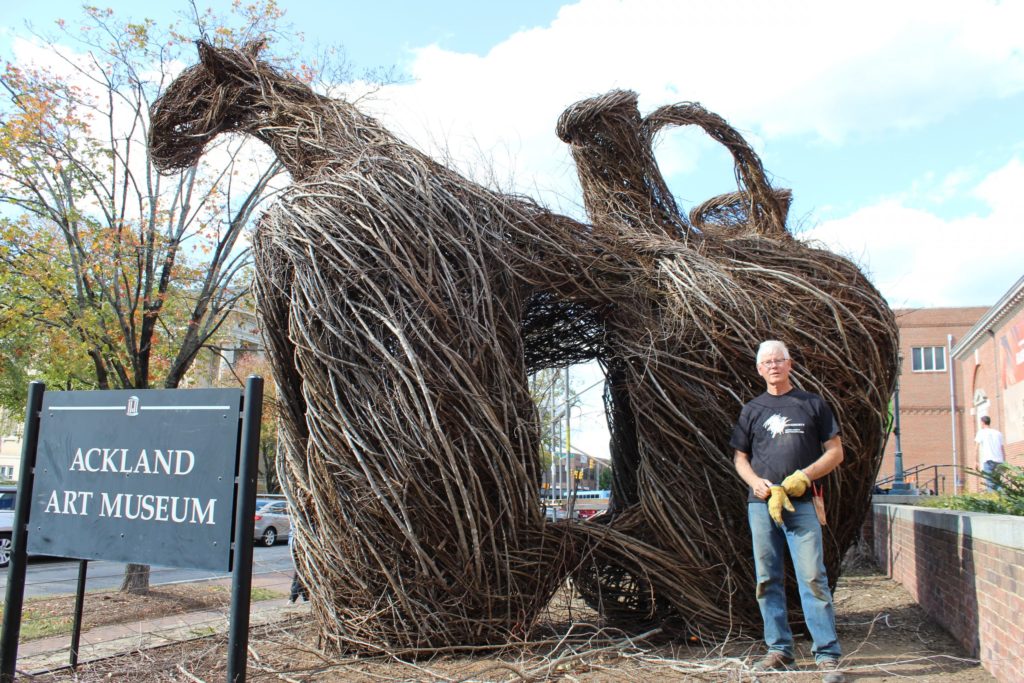Meredith Emery, a third-year student at the University of North Carolina at Chapel Hill pursuing a major in studio art and a minor in geography, was recently selected for the prestigious Beinecke Scholarship. Emery will graduate in December 2019 and hopes to earn an interdisciplinary MFA with a focus in sculpture to allow her to continue to represent local landscapes of personal significance and public resonance.
The Beinecke Scholarship, a program of The Sperry Fund, recognized Emery’s impressive achievements with a $34,000 award to attend graduate school in the arts, humanities or social sciences. She is one of 18 students nationwide to win the award, selected from a pool of 90 nominees. Emery is UNC-Chapel Hill’s seventh Beinecke Scholar.
Emery, from Charlotte, has already had many solo and group exhibitions featuring her artwork, including “Forward Together, Not One Step Back” at the Alumni Sculpture Garden outside Hanes Art Center, “Among Our Trees: Ring Studies” at the North Carolina Botanical Garden and “Into the Archives” at the Patti and Rusty Rueff Galleries at Purdue University.
“I am incredibly thankful to the Beinecke selection committee for believing in me and the arts,” Emery said. “I look forward to working with the program in the upcoming years, and continuing to make art that unites people in empathetic and truth-seeking conversations.”
Emery’s artistic work and research calls the public to participate in close observation and conversation about the interconnectivity of built environments. In the last year, she completed the “Chapel Hill North Carolina Stream Project,” a photo-ceramic series now exhibiting at the UNC Institute for the Environment. This project was executed in partnership with the Carbonshed Lab at Carolina, a research team investigating the cycling of nutrients in Chapel Hill watersheds.
Outside the classroom, Emery serves as the undergraduate attorney general staff counsel for the Undergraduate Honor Court. She has also facilitated art projects and art therapy for patients and their family members as a Carolina ArtHeels UNC Hospitals volunteer and led the curation and exhibition of student artwork at UNC-Chapel Hill’s SAMple Gallery.
“Meredith is a shining star who combines her academic research and talent for art and sculpting with her passion for communicating about challenging social issues of our times,” said Interim Chancellor Kevin M. Guskiewicz. “Meredith’s accomplishments also demonstrate how a ‘synergy unleashed’ approach to higher education – bringing together the arts, humanities and sciences – can create powerful ways to communicate complicated subjects with diverse audiences. Thanks to this opportunity, I know we will hear more about Meredith in the years to come as she employs artistic expression to take on the grand challenges of our time.”
A member of Phi Beta Kappa and Honors Carolina, Emery has won multiple awards for her research and artwork, including the Alexander Julian Prize, given to a studio art major whose work exhibits a high standard of design, and the Jonathan E. Sharpe Scholarship, intended to allow a studio art major to undertake work that would not otherwise be financially possible. She plans to continue her research and creative work in graduate school, using a multimedia hybrid to reflect the growing influence of technology on social and environmental issues.
“Meredith has shown an unusual ability to combine research on the environment with her talents in the fine arts,” said Inger Brodey, director of Carolina’s Office of Distinguished Scholarships. “She is called to create public art that elicits conversation among people who might otherwise feel polarized by political or environmental issues.”
The Beinecke Scholarship Program was established in 1971 by The Sperry and Hutchinson Company board of directors to honor Edwin, Frederick and Walter Beinecke. The program seeks to encourage and enable highly motivated students to pursue opportunities available to them and to be courageous in the selection of a graduate course of study in the arts, humanities and social sciences. Since 1975, the program has selected more than 646 college juniors from more than 110 different undergraduate institutions for support during graduate study at any accredited university.




